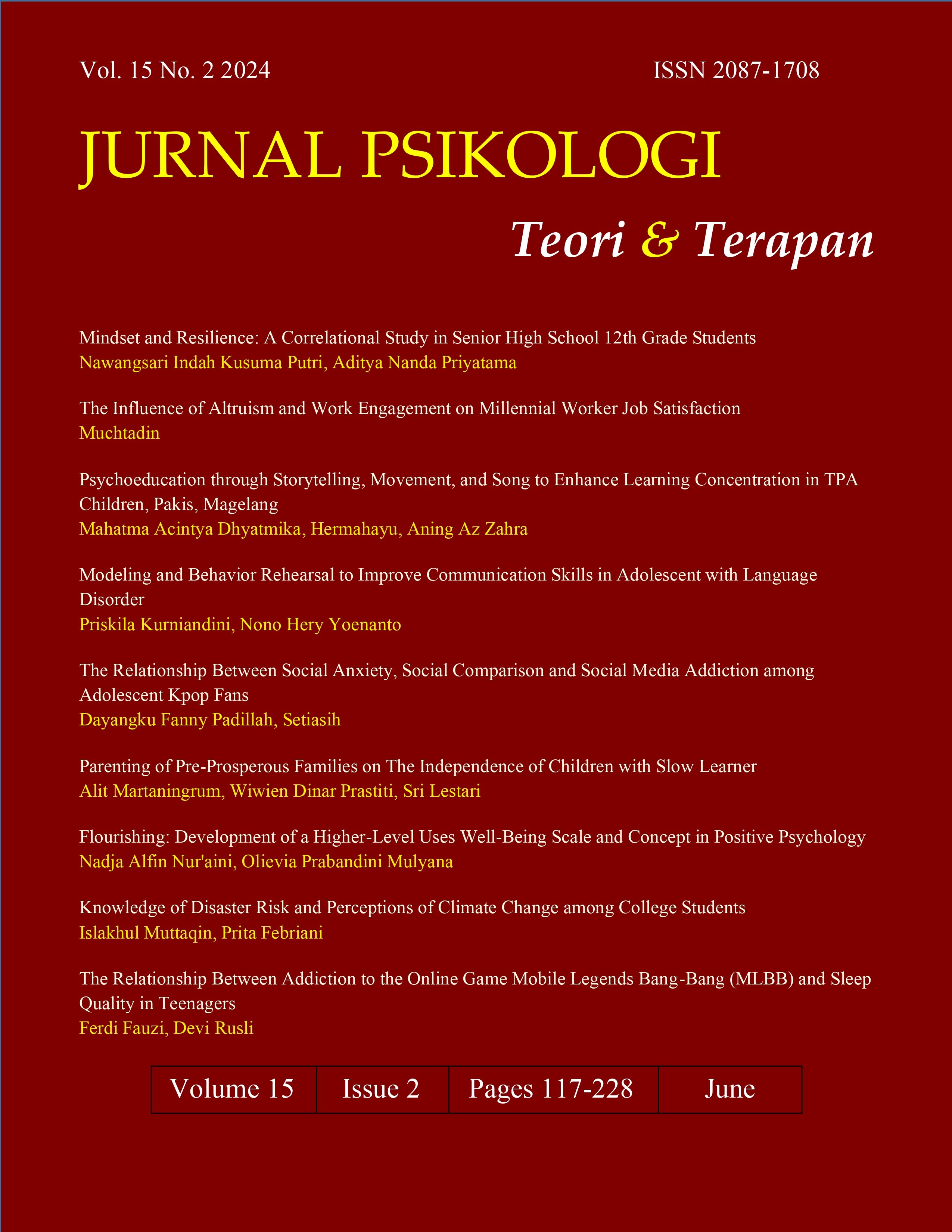Flourishing: Development of a Higher-Level Uses Well-Being Scale and Concept in Positive Psychology
DOI:
https://doi.org/10.26740/jptt.v15n02.p194-207Keywords:
Flourishing, well-being, theory, scale, literature review, berkembang, kesejahteraan, teori, skala, tinjauan literaturAbstract
Background: Flourishing is the highest level of well-being in positive psychology. Flourishing individuals have high levels of well-being based on hedonic and eudaimonic well-being perspectives. Flourishing is a developing concept that has yet to be widely studied in positive psychology. Objective: This literature review aims to trace the development of theoretical concepts and scales that can be used to research the flourishing variable further. Methods: This research uses a literature review, which involves searching reputable journals for articles related to the concept and scale of flourishing. Results: The PERMA concept introduced by Seligman is the primary literature that forms the foundation for examining flourishing by combining two theories. This PERMA concept states that flourishing in individuals can be measured by five aspects: positive emotions, engagement, positive relationships, meaningfulness, and individual achievement. Conclusion: Other researchers then developed the PERMA concept as a reference for creating a flourishing scale. Keywords: Flourishing, well-being, theory, scale, literature reviewDownloads
Published
How to Cite
Issue
Section
License

This work is licensed under a Creative Commons Attribution-NonCommercial 4.0 International License.
Authors who publish in this journal agree to the following terms:
Copyright in any article is held by the author.
The author grants the journal, publication rights with the work simultaneously licensed under a Creative Commons Attribution License that allows others to share the work with an acknowledgment of the work's authorship and initial publication in this journal.
Authors may enter into separate, additional contractual arrangements for the non-exclusive distribution of the journal's published version of the work (e.g., posting it to an institutional repository or publishing it in a book), with an acknowledgment of its initial publication in this journal.
Authors are permitted and encouraged to post their work online (e.g., in an institutional repository or on their website) prior to and during the submission process, as this can lead to productive exchanges, as well as earlier and greater citation of published work.
 Abstract views: 2010
,
Abstract views: 2010
, PDF Downloads: 1451
PDF Downloads: 1451


















